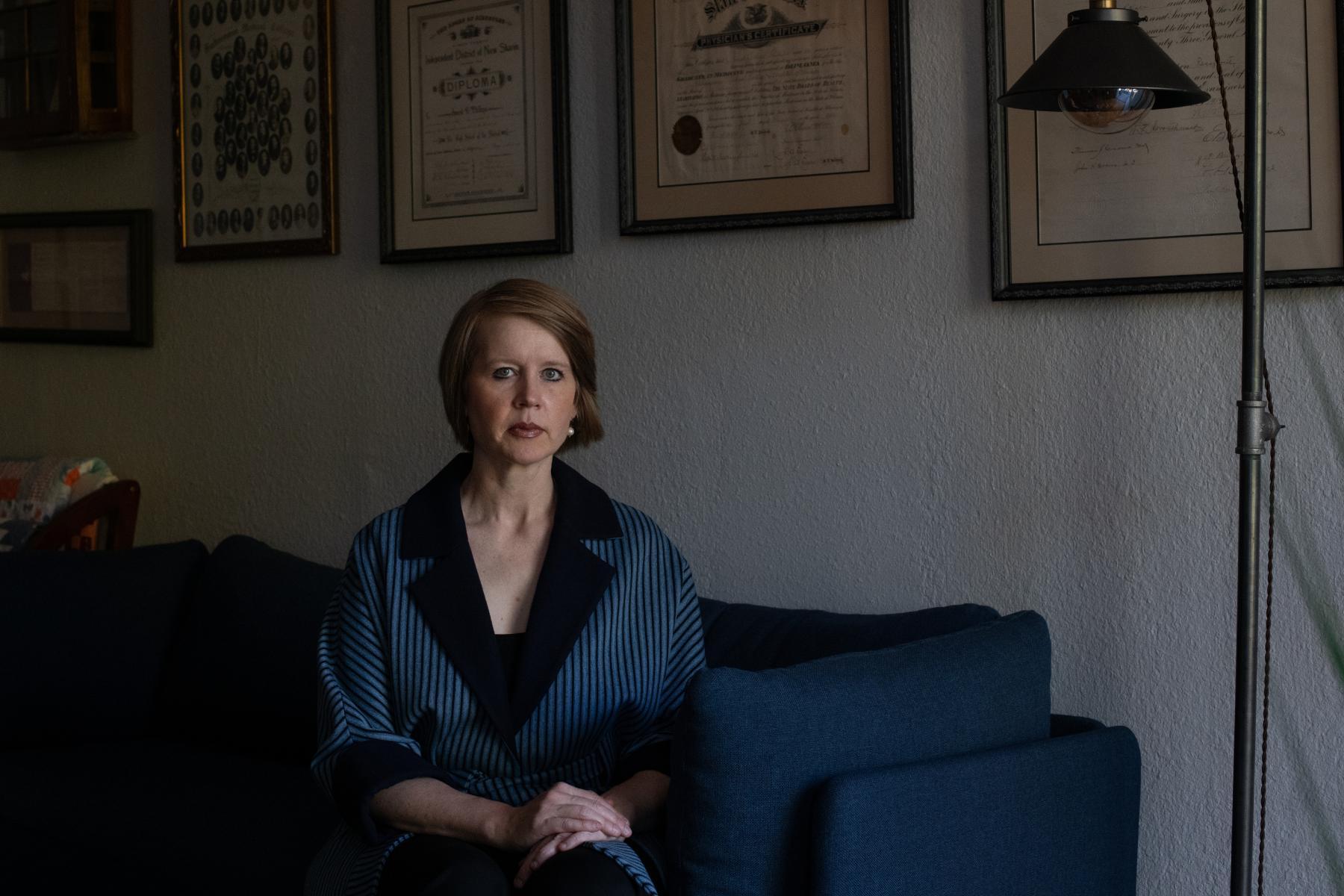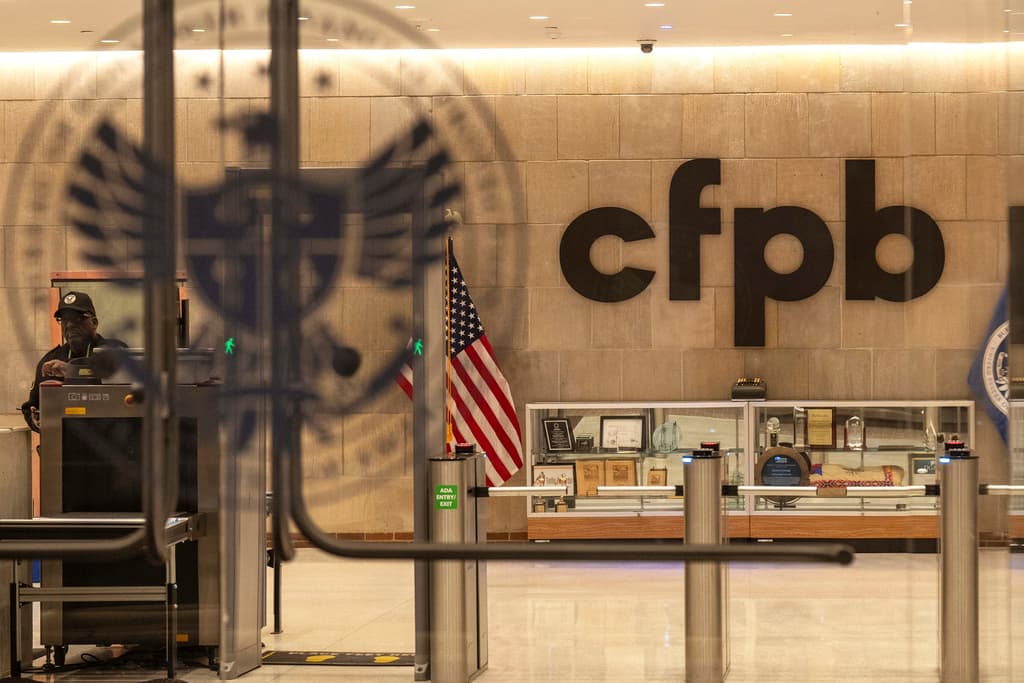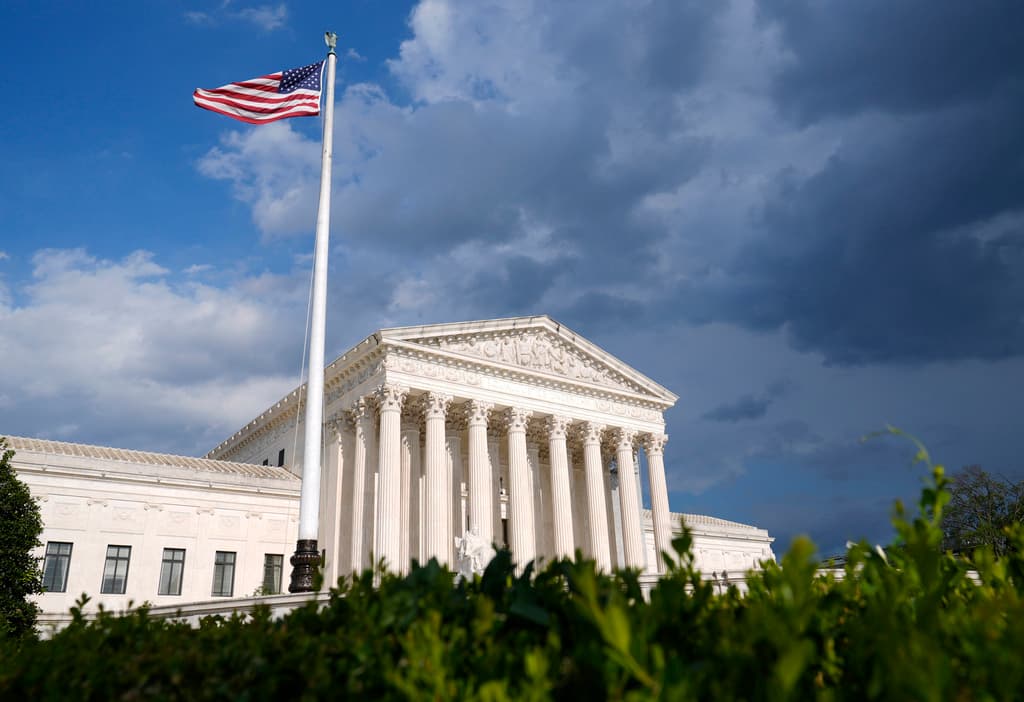
Updated at 2:52 p.m. on Tuesday, October 7, 2025.
Does Colorado’s 2019 law that prohibits conversion therapy for minors violate free speech? That was the issue lawyers for the state and a Christian legal group brought before the U.S. Supreme Court Tuesday morning.
During 90 minutes of oral argument, the justices had tough questions for both sides, with a focus on how demanding the court’s review of the law must be; whether they should give it “strict scrutiny” as potentially burdening a fundamental right, or follow the state’s argument that talk therapy is regulated medical conduct.
Kaley Chiles, a licensed therapist from Colorado Springs, is challenging Colorado’s law, arguing the state is unconstitutionally restricting her use of speech in her work. Chiles is represented by Alliance Defending Freedom, a conservative legal powerhouse that claims 16 Supreme Court victories in recent years.
Her attorney argued strict scrutiny should apply because the law, he contends, limits Chiles’s free speech based on viewpoint.
That means the government must show a compelling interest for the law and use the least restrictive means to achieve that interest. It's a difficult standard to meet and would likely mean the state’s ban would go down.
“If heightened scrutiny doesn't apply, states can transform counselors (into)mouthpieces for the government,” said James Campbell, Chiles’s attorney and chief legal counsel for ADF.
Several of the conservative justices seemed in agreement with Chiles’s assertion that her constitutional rights are being violated.
“Looks like blatant viewpoint discrimination,” said Justice Samuel Alito.
Chief Justice John Roberts, pointed to past cases such as NIFLA v. Becerra, in which the court struck down California’s disclosure requirements for crisis pregnancy centers, and Holder v. Humanitarian Law Project, when justices considered whether the government can bar nonprofits from advising terrorist organizations. He noted that “just because they’re engaged in conduct, doesn’t mean that their words aren’t protected.”
Colorado’s Solicitor General, Shannon Stevenson, argued that the court should view talk therapy provided by state-licensed counselors as similar to other forms of medical care.
“A state cannot lose its power to regulate the very professionals that it licenses just because they are using words. A healthcare provider cannot be free to violate the standard of care just because they are using words. And a state cannot be required to let its vulnerable young people waste their time and money on an ineffective, harmful treatment just because that treatment is delivered through words,” argued Stevenson.
She added that the state’s case is premised on the notion that a therapist’s communications are in the “very specific context of treatment” and are subject to the same standards of care that would apply with regards to malpractice.
Responding to the Chief Justice’s concerns, Stevenson argued that requiring standards of care is “a fundamentally different regulation than a regulation of people out in the world going about their business like in Holder. “This is just a fundamentally different relationship.”
There have been conflicting rulings in lower federal courts about whether conversion therapy falls under the First Amendment.
The Tenth Circuit upheld Colorado’s law, finding it regulates Chile’s “professional conduct” or “treatment” and not her speech. However, another appeals court, the Eleventh, ruled against conversion therapy bans, finding the practice is protected speech.
Where does the case go from here?
The court is not expected to issue a decision until next year.
And while the 6-3 conservative court seemed open to Chiles’s argument, the questioning also seemed to suggest the justices might take other avenues, as opposed to just striking down Colorado’s law, a ruling which could potentially affect more than 25 similar state laws across the country.
Justice Kentanji Brown Jackson, for example, didn’t think deciding the law deserves strict scrutiny means the justices should automatically strike it down. Instead, she suggested the lower court should have a chance to reconsider its ruling.
“We have cases in which strict scrutiny was applied and it was surmounted. So why wouldn’t we give the lower court a chance to evaluate whether there’s sufficient evidence here for the state to actually go forward with this regulation?”
Justice Amy Coney Barett also asked several questions around strict scrutiny and whether the high court should apply it or send it back to the lower courts. The 10th Circuit did not apply strict scrutiny.
Justice Sonia Sotomayor noted that Chiles hasn’t been impacted by law, and there is “no imminent and credible threat of prosecution.”
“This is an unusual case because we have basically six years of no enforcement of this law — three years before this lawsuit, three since. And we have the entity charged with administering the law saying, ‘we're not going to apply it to your kind of therapy,’” Sotomayor noted.
That too, Sotomayor said, would be another reason to send it back to the lower courts.
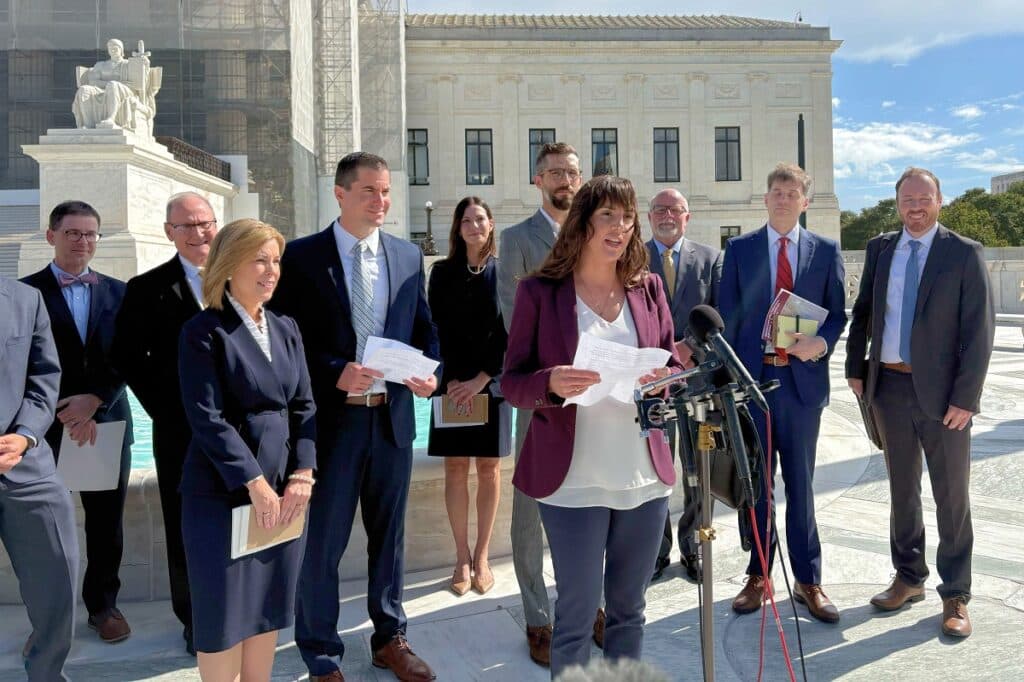
But Chiles’s attorney urged the justices to weigh in directly on the law. “There is ongoing harm every day. Ms. Chiles is being silenced.”
Campbell said during oral arguments that in the last few weeks "anonymous complaints” have been filed against the counselor that will have to be investigated.
Speaking to the media after arguments wrapped up, Attorney General Phil Weiser complained that Campbell was trying to add new information at the last minute without any ability for the state to verify or rebut it.
“This is not how the Supreme Court should be making decisions,” said Weiser.
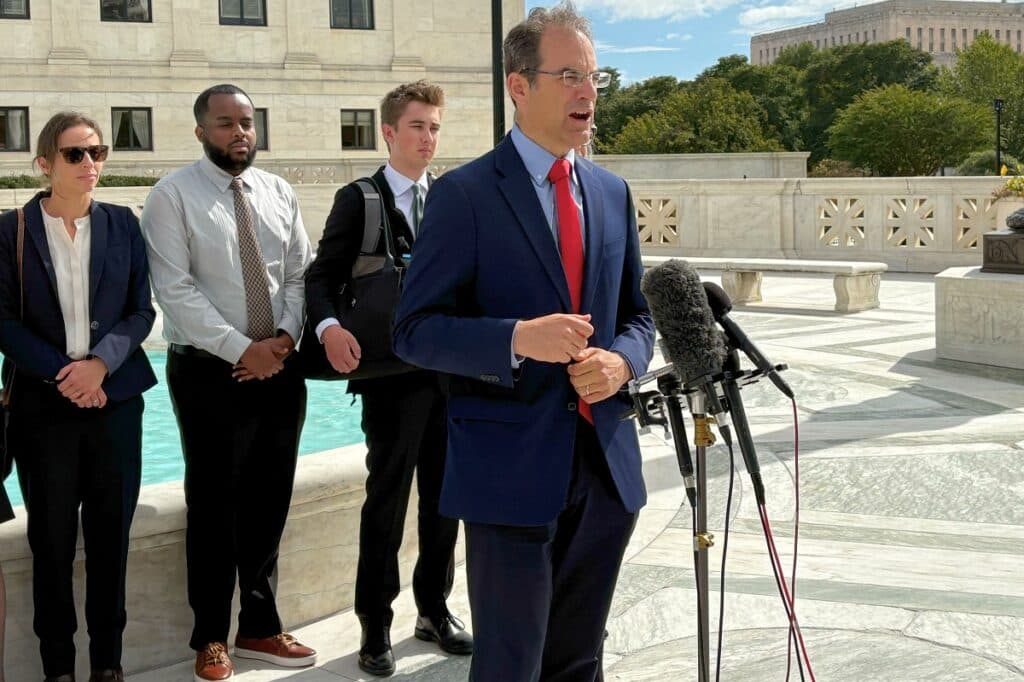
Harm from conversion therapy
For Colorado, the argument also seemed to hinge on emphasizing that conversion therapy is a discredited practice with the potential to harm young participants.
“People have been trying to do conversion therapy for 100 years with no record of success. There is no study, despite the fact that people tried to advance this practice, that has ever shown that it has any chance of being efficacious,” Stevenson said.
But Sotomayor said those claims gave her pause because “none of the studies say that talk therapy is harmful.”
The justices also debated the issue of medical consensus, and whether that could be used as a neutral criteria for judging laws.
“Have there been times when the medical consensus has been politicized, has been taken over by ideology?” asked Justice Alito.
Attorney Campbell noted that in the 1970s the professional medical consensus “was that being gay was a mental illness.
The American Psychiatric Association removed homosexuality from its manual of mental disorders decades ago. Since then, major psychological governing bodies have concluded that the practice of trying to change a person’s sexual orientation or gender expression or identity can have lasting harms.
When Colorado passed its law six years ago, more than a dozen states already had similar bans on their books. Today that number has grown to nearly half of states, including some relatively conservative ones. Two years ago, Republican lawmakers in Utah voted unanimously to codify a conversion therapy ban.
However, with more younger people identifying as trans, the debate over conversion therapy has shifted, with supporters of the practice arguing therapists should have the right to counsel minors to accept the sex they were assigned at birth.
Leaving the court, Campbell with the Alliance Defending Freedom seemed confident. “The court seemed very receptive to the points we were making.”
Weiser, though, reiterated that the state has long regulated and provided oversight of medical professionals. “The idea that there could be a First Amendment exemption to this is dangerous, can create a lot of mischief. We've made our case to the Supreme Court. We'll now wait on an answer.”
LGBTQ groups, who have watched the court chip away at their rights in numerous recent rulings, will also be waiting.
“I am hopeful that when the dust settles, the Court will recognize that Colorado’s law is an ordinary regulation of a harmful treatment by licensed medical professionals. Several justices seem to understand that Colorado’s law regulates treatment, not expressive speech,” said Shannon Minter, legal director for the National Center on LGBTQ Rights.
“Others were drawn to the counter argument that any regulation of counseling is automatically about restricting speech, even though that view would permit any regulation of talk therapy to be challenged on free speech grounds. Chief Justice Roberts and Justice Barrett both played it close to the vest, so the ultimate vote seems very much up in the air,” said Minter.
CPR’s Bente Birkeland contributed to this story.

